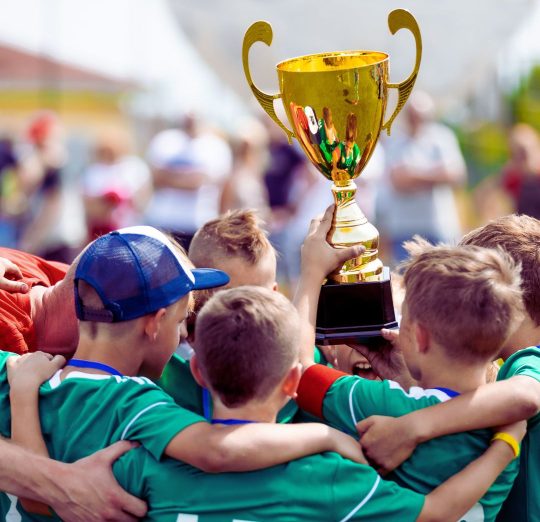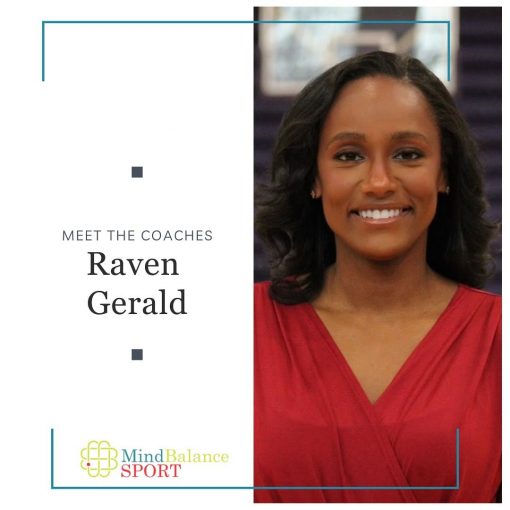Sports Psychologist in Germantown, MD
You want to work on your mental game, but how do you train your brain?
At MindBalanceSPORT, We Train The Other Half Of The Athlete.
You want to work on your mental game, but how do you train your brain?
Mental training does not get much media attention, but at MindBalanceSPORT we know it is a game changer. The mental skills you will learn at MindBalanceSPORT are generalizable in the classroom, in sport and in life!
We know that mental skills can be successfully taught, even at an early age.

Our Services
Meet the Team





testimonials
Athlete Stories: Real Comebacks, Real Results

Emma, a high school basketball player, tore her ACL in the middle of her junior season. After surgery, she struggled with self-doubt and fear every time she stepped back on the court. Through sport psychology training, she learned visualization techniques and confidence-building exercises that helped her regain trust in her knee. When she returned for her senior season, she didn’t just play—she led her team to the playoffs.

Carlos, a soccer player, suffered a stress fracture in his foot and had to miss half of his season. Sitting out was mentally tougher than the pain itself. We worked on mental engagement strategies to keep him sharp—studying game film, setting small rehab goals, and using mental imagery to stay ready. When he was finally cleared, his confidence never wavered.

Jordan, a track athlete, strained her hamstring before a major competition. She feared losing speed and falling behind competitors. Instead of focusing on what she couldn’t do, we redirected her energy toward mental preparation, using self-talk and goal setting to keep her confidence strong. When she returned, she set a new personal record.
EXCELLENTTrustindex verifies that the original source of the review is Google. It was a great help to my 14-year-old competitive volleyball player daughter. Raven was great to understand and connect with her from start to end. We will continue with our sessions as needed.Trustindex verifies that the original source of the review is Google. Great results! I’ve loved working with Paula. Our sessions have greatly improved both the physical and mental aspects of my tennis game. I’m playing better and having more fun! Highly recommend!Trustindex verifies that the original source of the review is Google. Our family had a wonderful experience with Paula Castro. We needed some additional confidence in a particular area/sport and Paula helped get us there. We know who to turn to if we need help again. She’s been a Blessing. Thank you, Paula!Trustindex verifies that the original source of the review is Google. I highly recommend MindBalanceSPORT. Our son works with John Howard. John is very caring, positive, and effective at working with teenagers. John is an adept listener and created an individualized plan tailored to our son’s personality. After just a few sessions with John, we noticed a significant improvement in our son’s motivation and mental approach to sports and life in general. Our son looks forward to meeting with John and tells us that he benefits immensely from their connection.Trustindex verifies that the original source of the review is Google. Paula Castro is an outstanding professional on the field. She has helped my daughter improve her confidence, preparation, and thanks to these session she feels more prepared and motivated. Paula takes the time also to share (what she can) and align with us as parents to be on the same page. Strongly recommended!Trustindex verifies that the original source of the review is Google. MineBalanceSPORT has quickly become the area's expert in sports psychology. Their reputation is well deserved given their incredibly thoughtful, scientifically based approaches to treating performance-related conditions, and I have only heard glowing, positive feedback from those who have engaged in their program. I will also add that Drs. Jones and Chirby presented to us (our group comprises of 15+ doctors and masters level clinicans) about their program and impressed us all with their level of expertise and passion for this field. I give them my highest recommendation.Trustindex verifies that the original source of the review is Google. Dr. Jones was beyond helpful to me throughout our time together. If you are an athlete and you need advice or assistance this is the place to come to. She completely changed my outlook and mindset in a time when I needed her most. I look forward to staying in touch with her and am forever thankful for her expertise.Trustindex verifies that the original source of the review is Google. Paula has been a huge help with my daughter Morgan coming off her injury. It’s been 18 months since she’s played basketball and she’s thriving because I know Paula is guiding her the right direction. As a mother, I’m extremely gratefulTrustindex verifies that the original source of the review is Google. If you are looking for Amazing Psychologists who can help support you in your sports performance, you need to call MindBalanceSPORT! Dr. Chirby and her colleagues are a wealth of knowledge, they have so many helpful techniques for mind balance, and they have so much compassion for the communities that they serve! Highly recommend!!!
Recovery
While Everyone Has A Physical Ceiling, There Is No Mental Ceiling.
How Sports Psychologists in Germantown, MD Help Athletes Transition Out of Sport
How Sports Psychologists in Germantown, MD Help Athletes Transition Out of Sport
The career of a professional athlete is often characterized by intense physical demands, rigorous schedules, and an unwavering focus on achieving peak performance. However, this journey inevitably comes to an end. For many athletes, retirement from sport can be a challenging and emotional process. Sports psychologists play a critical role in helping athletes navigate this transition successfully.
How a Sports Psychologist Near Me Can Help with Transitioning Out of Sport
Athletes dedicate years—often decades—to their craft. When the time comes to step away from the professional arena, they frequently face challenges such as:
– Loss of Identity: Many athletes tie their self-worth and identity to their sport. Without it, they may struggle to redefine themselves.
– Emotional Distress: Feelings of grief, sadness, or even depression are common as athletes leave behind the camaraderie and structure of team environments or competition settings.
– Lack of Routine: Moving away from regular training schedules can create a void that feels overwhelming for individuals who thrive on discipline.
– Financial Concerns: While some athletes earn substantial incomes during their careers, not all have long-term financial security after retirement.
How Sports Psychologists Offer Guidance During Retirement
Sports psychologists are equipped to address both the mental and emotional aspects of transitioning out of professional sports. They provide strategies and tools that help retired athletes move forward with confidence and purpose.
- Helping athletes explore interests outside their sport.
- Encouraging self-reflection to identify personal strengths beyond physical abilities.
- Facilitating career exploration in other industries.
- Providing counseling for feelings of loss or uncertainty.
- Teaching coping mechanisms for stress or anxiety related to change.
- Building awareness about mental health resources available post-retirement.
- Setting short-term and long-term goals unrelated to athletic performance.
- Developing plans for education, entrepreneurship, or other professional pursuits.
- Encouraging personal projects or hobbies that bring fulfillment.
- Creating daily routines that bring stability.
- Recommending activities such as volunteer work or continued fitness regimens.
- Incorporating mindfulness practices like meditation or journaling into everyday life.
Table: Common Challenges vs Solutions Offered by Sports Psychologists
| Challenge | Solution |
| Loss of athletic identity | Career coaching & personal discovery |
| Emotional distress | Counseling & stress management |
| Lack of routine | Establishment of new daily structures |
| Financial concerns | Partnering with financial planners |
A Holistic Approach to Retirement
Transitioning out of sports requires more than just logistical planning; it demands mental preparation as well. Sports psychologists recognize that each athlete’s journey is unique and tailor their approach accordingly. Through one-on-one sessions, group workshops, personality assessments, and goal-setting techniques, they help athletes build resilience while fostering optimism for what lies beyond the field or court.
By addressing both practical challenges and emotional hurdles head-on, sports psychologists serve as invaluable guides during one of the most significant transitions in an athlete’s life path—empowering them not just to retire successfully but also to thrive in their next chapter.
Navigating Retirement from Sports with Sports Counselling in Germantown, MD
Retiring from sports marks a significant turning point in an athlete’s life. For many, their identity is deeply intertwined with their athletic career, making the transition into post-sport life both emotionally and mentally challenging. Understanding why retirement can be so difficult sheds light on how crucial support systems, like sports psychologists, play a role in easing the journey.
Emotional Challenges
- Loss of Identity:
Athletes often identify strongly with their sport. Stepping away can lead to questions like, “Who am I without my sport?” This identity crisis can lead to feelings of confusion or depression. - Grief for the Career:
Similar to other types of loss, athletes may grieve the end of their careers as they say goodbye to years of dedication and achievement. - Pressure to Redefine Purpose:
Without the structured goals and aspirations tied to sports, athletes may struggle to find a new passion or purpose in their everyday lives.
Mental Challenges
- Adjustment to Routine: Post-retirement life often lacks the regimented schedules athletes are accustomed to. This sudden shift can cause restlessness and difficulty adapting.
- Uncertainty About the Future: Those who haven’t prepared for retirement may feel overwhelmed by decisions about careers, finances, or even daily structure.
- Competitiveness Without an Outlet: Athletes may find it hard to replace the adrenaline rush or satisfaction that comes with winning competitions.
Physical Aspects Tied to Mental Well-being
After years of physical activity being central to their lives, retired athletes may face challenges such as weight gain or health issues associated with reduced exercise levels. This shift can impact mental health as well as self-esteem.
| Challenge | Impact |
| Loss of Identity | Feelings of purposelessness; self-esteem issues |
| Lack of Routine | Anxiety due to unstructured time |
| Reduced Physical Activity | Decline in fitness levels; potential body image concerns |
Financial Concerns
A professional sports career is often short-lived compared to other professions, leaving many retirees with financial uncertainty unless careful planning has occurred beforehand: – Will endorsement deals continue? – Are savings sufficient for long-term sustainability?
Sports psychologists often address these concerns indirectly by helping individuals manage stress tied to financial insecurity.
Athletes’ unique challenges during this transition highlight that retirement is not just about stepping away from competition but learning how to redefine oneself while managing profound physical and emotional changes. Sports psychologists provide critical tools and support during this period—both preventative (early preparation) and reactive (managing immediate concerns). This ensures that athletes not only survive but thrive in post-retirement life stages.
Navigating Sports Retirement with Performance Psychology in Germantown, MD
Retirement from sports is one of the most significant transitions an athlete can face. For many professional athletes, their identity, purpose, and lifestyle are deeply intertwined with their careers. When that career comes to an end, it can bring not only physical adjustments but also emotional and psychological challenges. Understanding why this transition is so difficult provides insight into how support systems, particularly sports psychologists, play a vital role.
Key Challenges Athletes Face During Retirement
- Many athletes grow up identifying themselves solely through their sport. Suddenly losing that identity can lead to feelings of emptiness or a lack of direction.
- The label of “athlete” often becomes synonymous with self-worth, making it hard to adapt when it’s no longer central to daily life.
- While some athletes earn significant income during their careers, poor financial planning or shortened careers due to injury can leave them unprepared for life after sports.
- Navigating new career options may also feel daunting after years of focusing solely on sports.
- Depression and anxiety are common among retired athletes as they adjust to a new lifestyle.
- The absence of the adrenaline rush from competition and the structured routine of training can exacerbate feelings of loss or purposelessness.
- Team environments often provide a built-in social network. When athletes retire, they may lose connections with teammates, coaches, and fans.
- This loss of camaraderie can lead to loneliness if not replaced by other meaningful relationships.
The Emotional Toll: Why It’s More Than Just Physical Transition
- Grief: Athletes may mourn the loss of their career in a way similar to grieving other life-changing losses.
- Uncertainty: Without clear goals or a plan for the future, athletes often feel an overwhelming sense of uncertainty about what comes next.
- Pressure: Societal expectations or personal standards may add pressure for retirees to succeed in other areas immediately after leaving their sport.
Comparison: Career Transitions in Sports vs Other Professions
| Aspect | Athletes Transitioning from Sports | Traditional Career Retirees |
| Age | Typically younger (20s–30s) | Older (50s–60s) |
| Identity Tied to Career | Stronger connection | Moderate connection |
| Financial Preparation | Often uneven | Generally more planned |
| Physical Demands Post-Retirement | Higher need for recovery | Less physically demanding changes |
How Awareness Can Ease Challenges
Understanding these unique challenges highlights why early preparation is critical in ensuring smoother transitions out of professional sports. Working closely with mentors, financial advisors, and mental health professionals like sports psychologists can help retired athletes rediscover purpose while equipping them with tools to build fulfilling lives after competition ends.
Master Sport Performance Training in Germantown, MD to Build Skills Beyond Professional Sports
For professional athletes, the transition out of sports can be one of the most challenging phases of their careers. The highly structured and competitive nature of athletics often leaves little space to prepare for life beyond the game. Sports psychologists play a pivotal role in helping athletes develop essential skills to thrive after retirement from competitive sports.
Why Skill Development is Essential
Post-retirement life can be a major adjustment for athletes who have dedicated years, or even decades, to perfecting their craft. Some common challenges include:
– Loss of identity tied to athletic performance
– Financial instability if proper planning hasn’t been done
– Lack of career direction outside their sport
– Emotional struggles such as anxiety or depression
The development of key skills ensures that athletes are better equipped to address these concerns and build fulfilling lives beyond their athletic careers.
Key Life Skills Fostered by Sports Psychologists
- Identifying interests and passions outside sports
- Setting short-term and long-term goals aligned with personal values
- Exploring career opportunities in coaching, broadcasting, or entrepreneurship
- Teaching money management techniques to maintain financial stability post-retirement
- Encouraging investments in education or business ventures
- Explaining the importance of budgeting in a new lifestyle without large sponsorships or contracts
- Enhancing interpersonal communication for networking opportunities
- Developing public speaking skills for roles such as motivational speaking or commentary
- Preparing athletes to effectively express their thoughts and needs in personal relationships
- Teaching self-awareness and emotional regulation strategies
- Improving adaptability to unexpected changes in routine or purpose
- Cultivating empathy when transitioning into mentorship roles
- Time Management and Routine Building
Athletes accustomed to rigorous training schedules often struggle with unstructured days after retirement. Sports psychologists assist by:- Helping create daily routines that promote productivity
- Emphasizing work-life balance outside high-performance environments
| Skill Area | Benefit |
| Career Planning | Identifies future goals and opens new opportunities |
| Financial Literacy | Builds long-term financial security |
| Communication | Strengthens professional networks and personal relationships |
| Emotional Intelligence | Increases adaptability and fosters positive mental health |
| Time Management | Creates structure for meaningful post-retirement activities |
Tailored Guidance from Experts
Each athlete’s experience is unique, requiring personalized strategies that align with individual needs. Sports psychologists use assessments, counseling sessions, and practical exercises to help athletes build these foundational skills over time.
By focusing on developing these crucial competencies, retired athletes have the tools necessary not only to manage challenges but also to discover new passions that lead them into fulfilling second careers or endeavors outside the world of professional sports.
How a Sports Mental Coach in Germantown, MD Can Help Athletes Overcome Post-Career Challenges
Transitioning from a career in professional sports is a significant life event, one that can bring about various psychological, emotional, and practical challenges. Sports psychologists play an essential role in helping athletes navigate this process effectively. They provide tools, strategies, and tailored guidance to address the unique difficulties that arise during this period. Below are some of the critical ways sports psychologists support athletes in overcoming post-career challenges.
Addressing Emotional and Psychological Adjustments
- Exploring Athlete Identity Beyond Sport: Many athletes define themselves solely through their performance. Psychologists help them uncover strengths and passions outside their sport.
- Managing Loss of Routine: Transitioning from a highly regimented schedule to unstructured time can feel overwhelming. Psychologists work with athletes to develop new daily routines that provide structure and stability.
- Providing Mental Health Tools: Techniques such as mindfulness, cognitive-behavioral strategies, and stress management are employed to ease emotional distress.
Developing Transferable Skills
| Skill | Sports Context | Post-Career Application |
| Discipline | Adhering to training schedules | Meeting deadlines in professional roles |
| Decision-making under pressure | High-stakes game situations | Handling stressful corporate scenarios |
| Leadership | Leading on-field teams | Managing or mentoring teams at work |
Psychologists also coach athletes on how these skills can be repurposed for non-sporting careers.
Navigating Career Changes
- Career Counseling: Identifying interests beyond sports to determine viable career paths.
- Building Confidence: Transitioning into unfamiliar roles can be daunting—psychologists aid in building self-belief for new ventures.
- Networking Support: Encouraging professional networking as a tool for exploring opportunities.
Creating Social Connections
- Psychologists emphasize the importance of forming new social networks.
- Group therapy sessions may be introduced for shared experiences among retired athletes.
- Encouragement is given to participate in hobbies or community activities that foster interaction.
Through targeted strategies and empathetic guidance, sports psychologists act as vital allies for athletes transitioning into life after competitive sports. Their interventions not only mitigate immediate struggles but also lay foundations for long-term personal fulfillment beyond the playing field.
Exploring Sports Psychiatry in Germantown, MD: Supporting Athletes Through Post-Career Challenges
Retirement from professional sports can be one of the most daunting phases of an athlete’s life. For years, athletes devote their lives to rigorous training, competition, and a structured lifestyle. When this chapter ends, many are left feeling adrift, struggling with a loss of purpose and identity. Sports psychologists play a vital role in supporting athletes through this critical transition by equipping them with tools to manage psychological and emotional challenges.
Common Post-Career Challenges Athletes Face
- Loss of Identity: Many athletes struggle to define themselves beyond their roles as competitors. The transition to a “regular” identity can feel unfamiliar and disorienting.
- Lack of Routine: Retirement disrupts the rigorous daily schedules that athletes have followed for years, leading to a sense of aimlessness.
- Financial Stress: Transitioning into new careers or managing long-term finances after retirement can be overwhelming without proper planning.
- Emotional Challenges: Feelings of grief, anxiety about the future, or even depression are common as athletes adjust to life away from the spotlight.
- Social Changes: Losing the camaraderie of teammates or the admiration of fans can lead to loneliness and social isolation.
Strategies Sports Psychologists Use
- Identity Work
Psychologists assist athletes in exploring who they are beyond their athletic careers. By identifying personal values, interests, and skills outside sports, they help individuals craft an identity that feels fulfilling post-retirement. - Emotional Regulation Techniques
Coping strategies such as mindfulness practices, cognitive reframing techniques, and stress management exercises enable retirees to process emotions constructively. - Goal Setting for New Endeavors
Retired athletes benefit from setting realistic short-term and long-term goals—whether related to career development, education, or personal growth. - Career Transition Coaching
Sports psychologists guide individuals in identifying new career paths by leveraging their pre-existing strengths (e.g., leadership skills). They also offer support with practical steps like networking or resume preparation. - Cultivating New Routines
Establishing structure is essential during post-career transitions. Therapists help retired players create meaningful routines that include physical activity, hobbies, and community engagement. - Building Healthy Support Systems
Athletes moving on from competitive sports often need strong social networks outside athletic circles. A psychologist may encourage them to foster relationships that contribute positively to their well-being.
Example Framework for Athlete Support
| Challenge | Psychological Support Approach | Practical Tools/Activities |
| Loss of Identity | Values assessment; narrative therapy | Journaling; personality assessments |
| Emotional Struggles | Mindfulness; cognitive-behavioral interventions | Guided meditations; thought-restructuring |
| Career Uncertainty | Strengths-based coaching; career counseling | Skill inventories; mentorship programs |
| Social Isolation | Group therapy; community involvement strategies | Volunteer work; local club participation |
By addressing these challenges holistically through psychological intervention and practical steps, sports psychologists empower retired athletes not only to adapt but also thrive in life after competitive sports. Their role is pivotal in ensuring smooth transitions into meaningful post-sport lives while safeguarding mental health throughout this transformational period.








